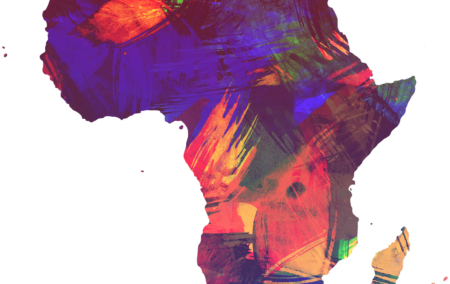Rwanda, Ethiopia and Ivory Coast offer South Africa telling lessons on what it takes to succeed.
The International Monetary Fund’s estimation of Sub-Saharan Africa’s GDP growth rate of around 3% in 2018 masks the dismal economic performance of South Africa, which achieved a growth rate of less than 1%.
This is in sharp contrast to the gains registered by Rwanda, Ethiopia and Ivory Coast, which achieved growth rates of around 7.0% or more in 2018.
These countries all feature in the top 10 fastest-growing economies in the world. They are seeing significant investments and a rapid rise in the quality of life of their citizens.
By contrast, South Africa has been stuck in a low-growth trough since 2013, with destructive economic policies applied, proposed or entertained deterring investment, stifling growth and deepening the unemployment crisis.
So where exactly are Rwanda, Ethiopia and Ivory Coast succeeding where South Africa is failing?
Rwanda is one of the least corrupt African countries, ranked 43rd out of 180 countries on Transparency International’s Corruption Perception Index 2018.
South Africa ranks much further down on the list, at 73. Given how state capture has crippled our state-owned enterprises (SOEs) and key democratic institutions, corruption is an important impediment to investor confidence and growth, which Rwanda has been far more successful in dealing with than South Africa.
The gap between Rwanda and South Africa widens further in the World Bank’s Ease of Doing Business Index 2019.
Where Rwanda is ranked 29th out of 190 countries, South Africa is pegged at 82.
Small businesses are major contributors to the economy and employment. It is therefore clear that Rwanda’s policies are much more conducive to business growth than South Africa’s hostile policies, especially in the Small Medium and Micro Enterprises sector.
According to the African Development Bank Group (AfDB), Ivory Coast is reaping the rewards of the many reforms it incorporated in its 2016-2020 National Development Plan.
Ivory Coast’s reforms have focused on ensuring the energy sector’s financial sustainability, and investing in supply capacity. As a result, installed capacity increased by 56% between 2011 and 2018, while rural electricity coverage expanded from 33% to 54% over the same period.
In South Africa, however, Eskom is the biggest threat to economic stability, with loadshedding being reintroduced thanks to years of mismanagement, corruption and a lack of maintenance at the national power generator.
Lastly, Ethiopia is not allergic to the idea of privatisation as South Africa is.
In the 1970s, Ethiopia’s monarchy was deposed and replaced by a Marxist military government which went on to implement wide-scale nationalisation of all companies and land in the country.
This resulted in Ethiopia’s in becoming one of the most marginalised and unstable countries in the world. Since the fall of the Soviet Union, however, Ethiopia has embarked on reforms which have included privatisation of state enterprises. According to AfDB, further privatisation of the state-owned railway, maritime, air transport, logistics, electricity and telecommunications sectors is expected to boost private investment.
President Cyril Ramaphosa’s State of the Nation Address, on the other hand, made no mention of privatisation as an option for South Africa’s failing SOEs.
A number of prominent African National Congress figures have regularly stated that full or partial privatisation of debt-ridden Eskom and SABC is out of the question.
If South Africa remains unwilling to curb corruption, introduce business-friendly policies and implement privatisation where necessary, the country will deteriorate further and continue to cast a shadow over the Rising Africa narrative.
South Africa will no longer be able to rely on its ‘gateway to Africa’ reputation as investors increasingly look northwards to countries such as Rwanda, Ethiopia and Ivory Coast.
Africa is powering forward while South Africa is being left behind.
Gerbrandt van Heerden is an analyst at the Institute of Race Relations.
If you like what you have just read, become a Friend of the IRR if you aren’t already one by SMSing your name to 32823 or clicking here. Each SMS costs R1. Terms & Conditions apply

